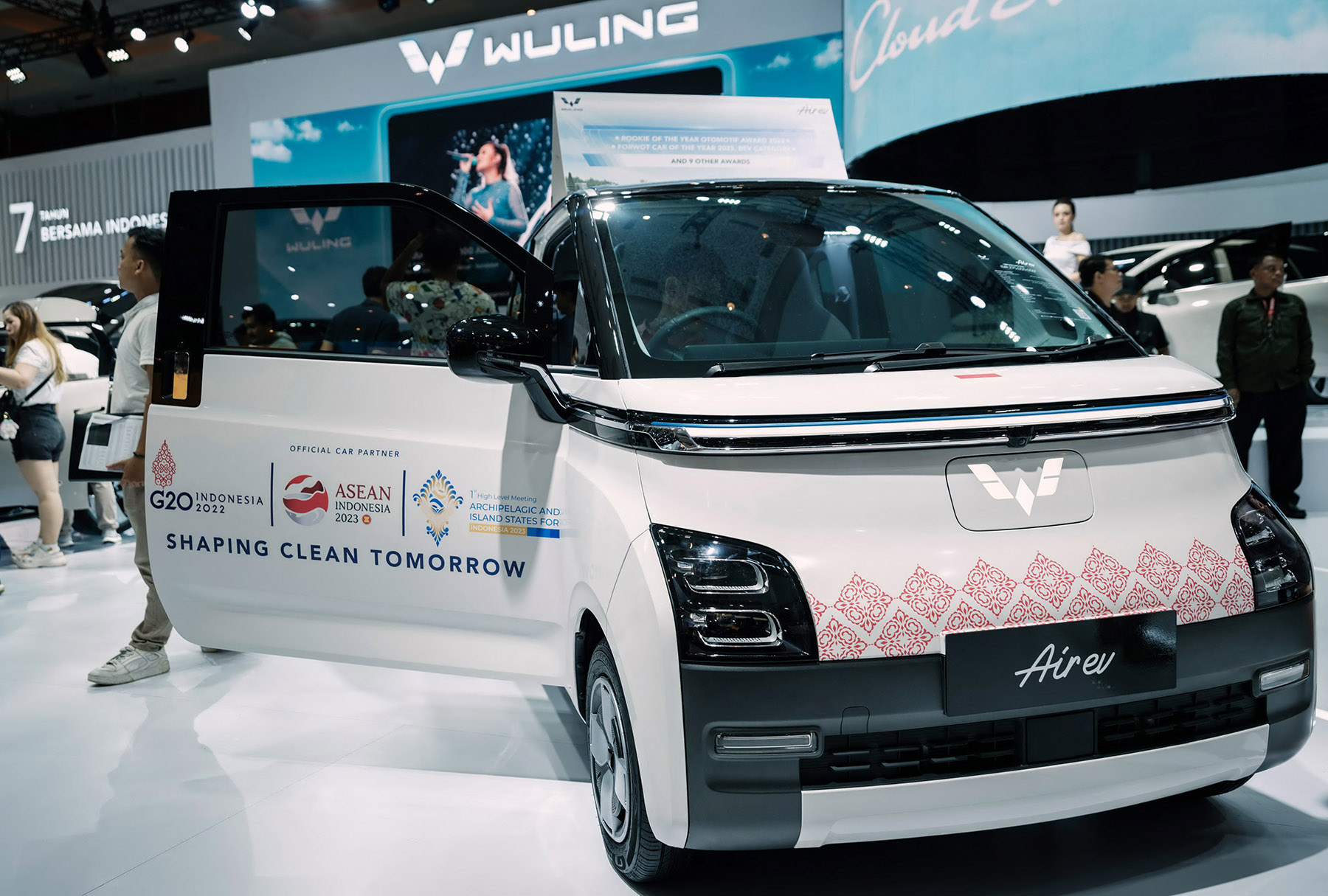EVs' affordability, design attract youth, giving them an edge over other players

JAKARTA — Adinda Ratna Riana, 32, is excited because she will have her first electric car this year, with the Chinese-made four-seater Wuling Cloud EV being her choice.
What made her opt for a Chinese EV was its attractive price and design. She also wanted to bid farewell to her fuel-powered car.
READ MORE: Chinese EVs' capabilities lauded in social media world
"Chinese EVs are very cute in terms of design and color. The Cloud EV I am buying is relatively smaller, which is suitable for a married person with no kids like me. Even if I have a kid later, the car will still suit us," said Riana, who owns a clothing business in Tangerang, Banten Province.
"Also, I think Chinese EVs offer competitive prices that the middle class can afford," she said on Saturday.
Like Riana, Stefano Adrianus, 29, opted for an electric car. He bought his first EV, the Chinese Wuling Air EV, in April. He said he didn't consider any non-Chinese electric cars because they were "unreasonably pricey".
"I only consider Chinese cars because they come with affordable prices but have good quality," Adrianus said.
He said his Wuling Air EV was suitable for daily mobility because of its compact size, practicality, efficiency, ease of use, and advanced features. "Not to mention, it has a unique and futuristic design. Other EVs (brands) offer luxurious designs, but who needs the luxury that we cannot afford?" Adrianus told Xinhua.
Indonesia has seen a surge in the number of people opting for electric cars. In recent years, EVs have proliferated on the streets, facilitating everyday transportation needs. Chinese EV brands, in particular, have become increasingly popular among urbanites, especially the younger generation.
According to the Association of Indonesia Automotive Industries, the demand for electric cars in Indonesia continues to increase, thanks to the availability of several EV models at affordable prices.
The 2024 Periklindo Electric Vehicle Show, or PEVS, held from April 30 to May 5 in the capital Jakarta, recorded sales in excess of 400 billion rupiahs ($24.9 million).
The association's figures have shown that in April, Chinese EVs topped the charts, with Cloud EV emerging as the best-selling model, followed by Omoda E5 and Binguo EV. A total of 597 Cloud EV cars were sold that month.
Cloud EV and Binguo EV are manufactured by China-based Wuling Motors, with prices ranging from 350 million to 400 million rupiahs per unit, while the Omoda E5 is produced by Chery, another leading Chinese automaker.
Most popular choice
Wuling's Air EV became the most popular choice for young buyers in the first quarter of this year. With an estimated price of 200 million rupiahs, it accounted for about 64 percent of the electric vehicle sales in Indonesia, exceeding 5,000 units.
Wuling Motors public relations manager Brian Gomgom said Wuling focused on producing EVs that could win the hearts of Indonesia's younger generation. "It can be seen from our compact designs that provide comfort in mobility while protecting the environment," he said.
Among the latest Chinese EV brands coming to Indonesia is NETA, especially the NETA V-II series, which cost an affordable 299 million rupiahs.
"Competition among electric cars in Indonesia will be stiffer because consumers will have more choices of models and prices," Jongkie Sugiarto, chairman of the Association of Indonesia Automotive Industries, said.
ALSO READ: EV of BYD India attracts 1,000 bookings in two months
Indonesian Coordinating Minister for Economic Affairs Airlangga Hartarto said recently that the government wants to make the country an EV production hub in the Southeast Asia region. He invited EV makers to invest in Indonesia, which is known for its rich reserves of nickel ore, the main component for making EV batteries.
"We encourage electric car manufacturers to immediately deepen the structures and make Indonesia a production base in ASEAN, in addition to encouraging the domestic market to continue to grow," Hartarto said.


